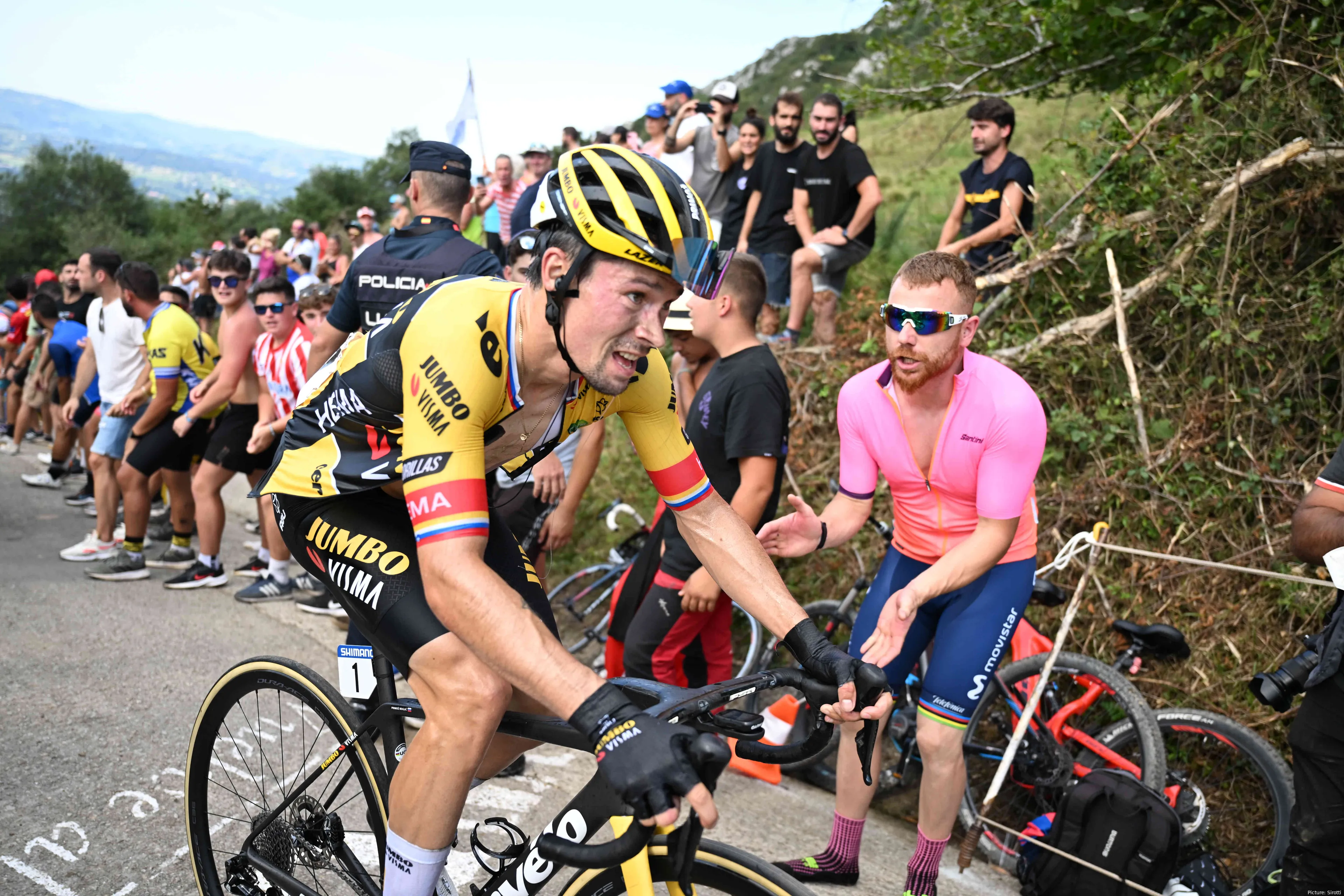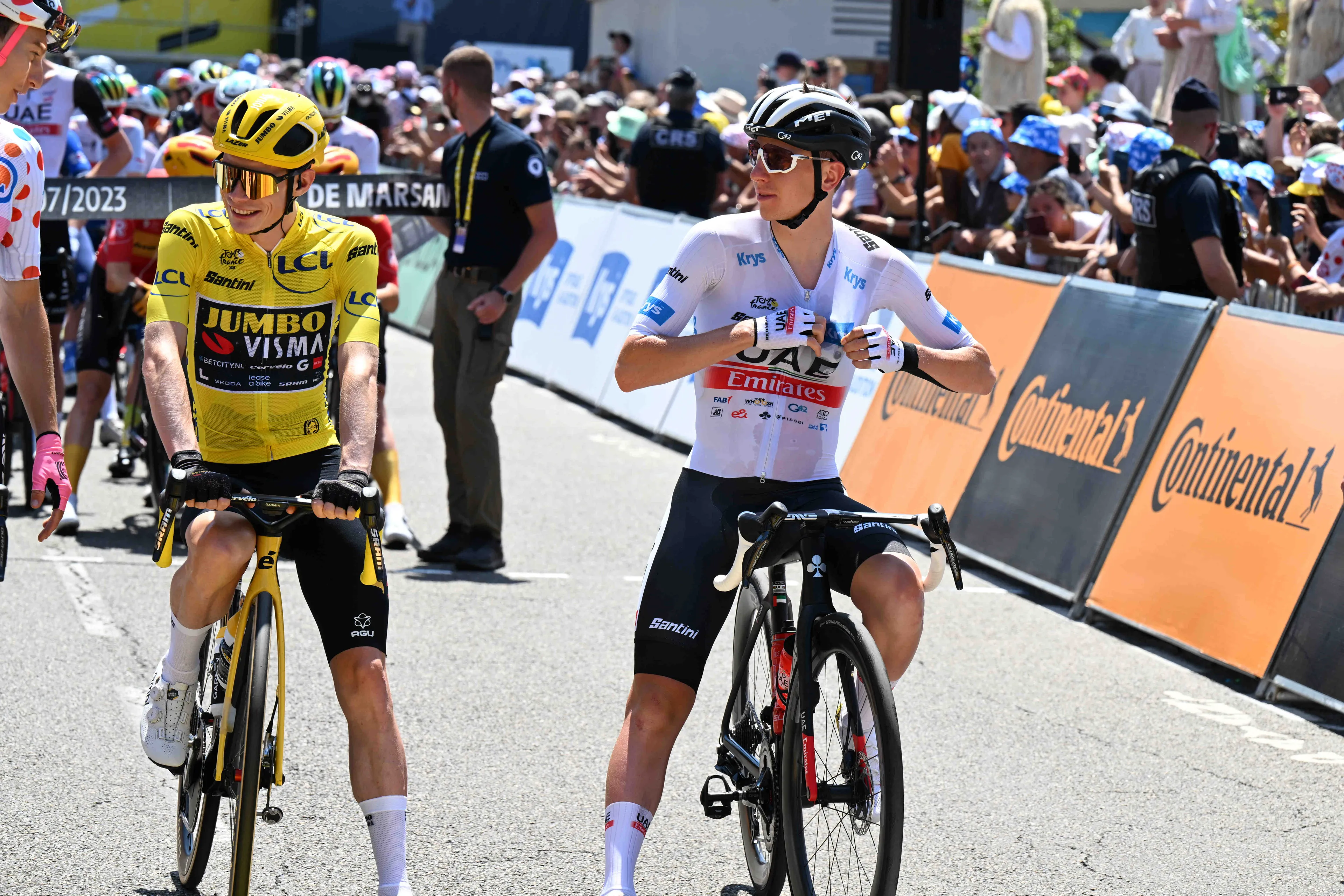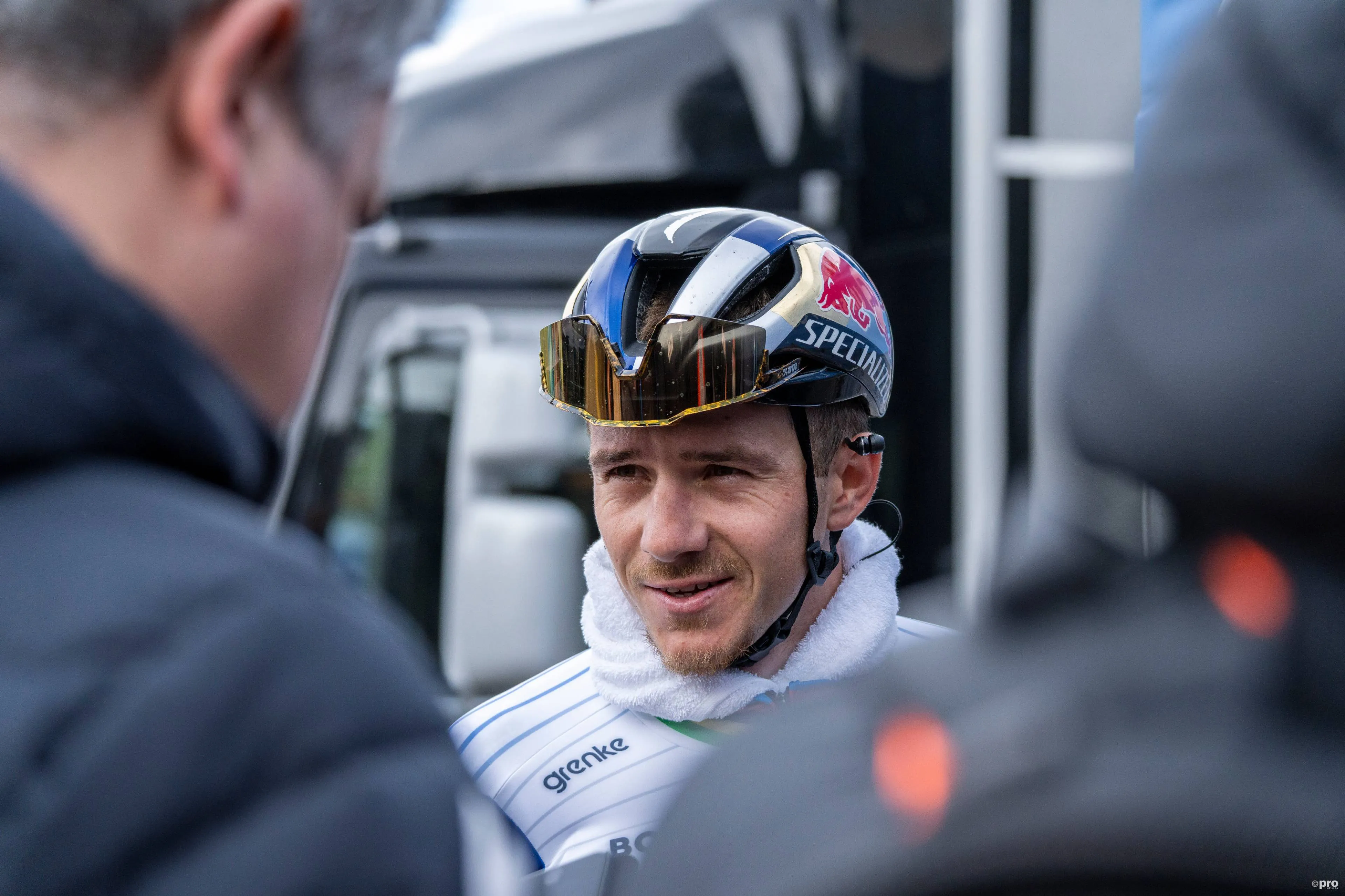"As a GC rider, it's not enough to just be at 90%" - Growing into the 2024 Tour de France won't be an option for Primoz Roglic according to BORA - hansgrohe sports director
CyclingSaturday, 28 October 2023 at 14:12

The 2024 Tour de France will start with a vengeance in Italy before crossing the Col du Galibier on stage 4 and entering the French borders. Because of this, coming in half-baked and growing into the race won't be an option for Maillot Jaune hopefuls.
For BORA - hansgrohe, the general classification rider is expected to be their star signing from Jumbo-Visma, Primoz Roglic. Analyzing the race profile for his team's official website, BORA - hansgrohe sports director Rolf Aldag can see a plan forming to claim the victory.
Read also
"We know that the Tour start is always nervous. Now add to that the fact that it is also very difficult from a sporting point of view," he opens. "To plan more specifically, we will definitely look at the Italian stages. There will be plenty of opportunities around Paris-Nice and Tirreno-Adriatico in the spring to do our homework."
"It won't be a long wait - stage 4 is already a tough one. As a GC rider, it's not enough to just be at 90%," he continues. "It may be an old saying, but it certainly applies here: on this day you can't necessarily win the Tour, but you can lose it very early on. After that follows an unusual back and forth. It's not a typical clockwise or counterclockwise loop through France. It's more of an Alps-Pyrenees-Alps switch."
Read also
Two relatively long time-trials also pose a threat for any GC rider and although, Roglic is quite accomplished in the discipline, as he's seen in the past, Grand Tours can be won and lost against the clock. "The time trials are both hard. Knowledge of the course, pacing strategy, choice of material - everything becomes very important here," says Aldag. "The final TT, in particular, is unrhythmic, uphill out of Monaco and downhill into Nice. It could be an advantage that many riders live there and know the course."
"The last week is particularly demanding and offers many chances for a preliminary decision. If you already have the chance to make up time here, you’d be sure to take it and avoid the decision on the final day," he concludes. "The 2024 Tour has some extremely high mountains. There will be a lot of riding above 2000 metres. Who will do well at that altitude? Not many riders can, and it's the step up to the 2000 metre mark that quite often makes a difference among the climbers. We'll adjust to that, and the altitude training camps will be even more important now in our preparation."
Read also
claps 5visitors 3
Just in
Popular news
Latest comments
- You need to get out moreJezla18-02-2026
- Ego and self regard are at the center of most human folly.TheOlderIGetTheFasterIWas18-02-2026
- You can't win 'em all. These early season races at this level are good because it shows where you are weak and need work.awp18-02-2026
- This is what I wrote 12-02-2026 10:00: "As far as I'm convinced, Remco still has "zero" wins. I invite Remco to stop in Siena to meet his Slovenian master, Pogi the G.O.A.T... but no, it's better to run away and hide. His fans will somehow defend and glorify him. Let me repeat, he still has zero wins in 2026. If someone doesn't have a high enough IQ to understand what I'm talking about, it's because they don't recognize the low ranking F category races. If Remco will beat Del Toro and Adam Yates in the UAE Tour, then I will consider this to be his first win in 2026. Ad acta." PS: Remco still has zero wins. His second and third class races don't count. The first real race comes along and Mustafa Remco fails.Mou-Cro-HR18-02-2026
- This is what I wrote 12-02-2026 10:00: "As far as I'm convinced, Remco still has "zero" wins. I invite Remco to stop in Siena to meet his Slovenian master, Pogi the G.O.A.T... but no, it's better to run away and hide. His fans will somehow defend and glorify him. Let me repeat, he still has zero wins in 2026. If someone doesn't have a high enough IQ to understand what I'm talking about, it's because they don't recognize the low ranking F category races. If Remco will beat Del Toro and Adam Yates in the UAE Tour, then I will consider this to be his first win in 2026. Ad acta." PS: Remco still has zero wins. His second and third class races don't count. The first real race comes along and Mustafa fails.Mou-Cro-HR18-02-2026
- OK, let's stop with the BS. Remco Mustafa didn't have any cramps, 100%. The only truth is, Remco is not the great cyclist that the Belgians and his fans want us to think. Ad acta!!!... Once in the fall of 2025 I said that Remco's chances of following Pogi are equal to my chances, there is no difference. The only difference is that I'm in front of a TV and Mustafa is acting and making excuses live in front of an audience of millions. Ayuso and Remco are the biggest liars in the peleton.Mou-Cro-HR18-02-2026
- I just hope that he just says that he got cramps and that's it, rather than some long-winded excuse which makes him seem even more of a piece of...
 Rafionain-Glas18-02-2026
Rafionain-Glas18-02-2026 - finally, a team that does something smart. I could never understand why Ineos would like Egan train as he did alone. put a motorbike behind him with an earpiece to call out issues above. same with remco crashing into a postal truck.mij18-02-2026
- Wow, that is not a good sign for Remco. Great win for Tiberi!Pedalmasher18-02-2026
- Great champion Remco but his profile is more suitable for Ardennes-like races and tour with no very hard climbs. Not only Tadej and Vingegaard, there are a lot of younger cyclists (del Toro, Ayuso, maybe Seixas, Nordhagen and others) that will soon be big GC boys.
 maria2024202418-02-2026
maria2024202418-02-2026
Loading
Read statements on the route of @LeTour 2024 from Ralph Denk and Rolf Aldag: bora-hansgrohe.com/news/tdf24-rou… #TDF2024 #tourdefrance #borahansgrohe 📸 @SprintCycling
Write a comment








